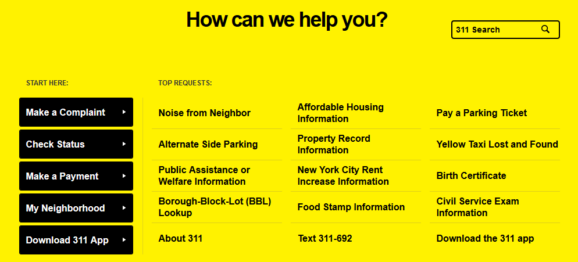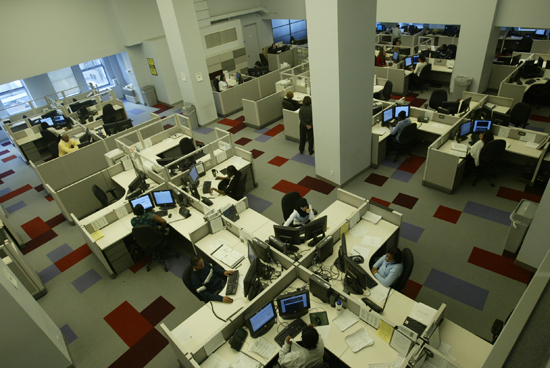Robotic Systems To Field 311 Calls In New York City
This article is more than 2 years old
 If you’ve ever lived in New York City, chances are you’ve had occasion to dial 311 at some point. 311 is the city’s 911 for non-emergencies, so when people convene under your window at 4:30 am for an impromptu party, 311 is the number you call (provided you don’t go out and join them). The network fields 60,000 complaints and questions per day via phone, text, app, and website—there’s not much downtime for those on the receiving end of New Yorker complaints. And that’s precisely why—you know what’s coming here—the 311 center is adding robotic systems to answer the easier questions.
If you’ve ever lived in New York City, chances are you’ve had occasion to dial 311 at some point. 311 is the city’s 911 for non-emergencies, so when people convene under your window at 4:30 am for an impromptu party, 311 is the number you call (provided you don’t go out and join them). The network fields 60,000 complaints and questions per day via phone, text, app, and website—there’s not much downtime for those on the receiving end of New Yorker complaints. And that’s precisely why—you know what’s coming here—the 311 center is adding robotic systems to answer the easier questions.
Since its inception in 2003, humans have fielded these queries 24/7. It’s surprising that’s gone on so long in the age of automated operators. In fact, the 311 center is so busy that a Microsoft Researcher likened it to a “NASA control center.” All that manpower is, of course, expensive, so after visiting the center, Microsoft began devising programmable software that can answer the easy, factual questions, such as queries about school closings or parking regulations. My initial thought is that people calling with these questions should use this miraculous invention called the Internet. However, it’s true that local questions are harder to answer online than general ones.

The crux of the system is separating a 311 query into two parts: understanding the question, and supplying the right answer. Typically, robotic systems are good at the latter but not the former. But on-the-fly programming capabilities can help with that—human 311 employees will set up the system to key in on common questions about school closings or current weather issues, which will give the system a big leg up in terms of understanding the request. Ultimately, the researchers predict their automated system will be able to field 20-40% of the queries. Limiting the initial rollout to the mobile app will allow them to adjust the system and make sure works before integrating it into all 311 platforms. I wonder if the bots will admit to being robots—although if they don’t, I’m not sure how effective it would be to call 311 to complain.












